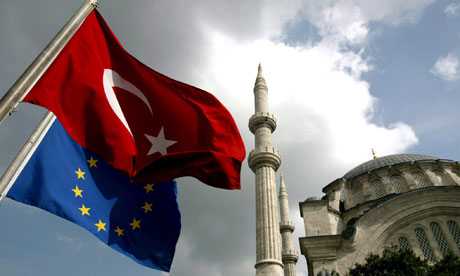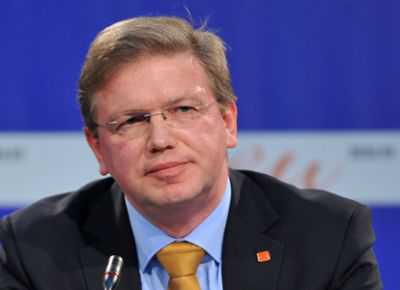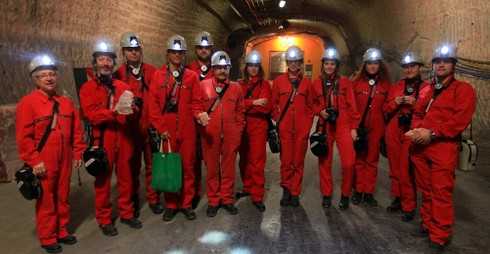A tiny thaw?
Many Turks have given up, but progress towards the EU inches forward
Feb 23rd 2013 | ISTANBUL |From the print edition
AFTER 30 months in the deep freeze Turkey’s bid to join the European Union is for once warming a bit. France, which under Nicolas Sarkozy’s presidency blocked five of the 35 chapters that must be completed, has lifted its veto on one to do with regional aid. In Cyprus Nicos Anastasiades has a big lead in the presidential election (see article). He backed a 2004 UN plan to reunify the island that was accepted by Turkish-Cypriots but rejected by Greek-Cypriots. He could give Cyprus’s settlement talks a new push that might lead to its dropping some of its own vetoes on new chapters. Queasiness over letting in a big, powerful and prickly Muslim country aside, the EU’s biggest gripe with Turkey is its refusal to open ports to Greek-Cypriot vessels.
“No force can tear us away from Europe,” said Turkey’s foreign minister, Ahmet Davutoglu, at a recent conference. Yet Recep Tayyip Erdogan, the prime minister, has talked of joining the Shanghai Co-operation Organisation with Russia, China, and Central Asia (he later recanted). Such frustration is understandable: popular Turkish support for EU membership has fallen from over 70% when talks began in 2005 to as low as 33%. Nothing grates more than the various forms of watered-down membership touted by Germany’s Angela Merkel and other naysayers like the Austrians and the Dutch. “Membership is like pregnancy: you either are or you aren’t. There is no halfway position,” scoffs Egemen Bagis, Turkey’s Europe minister.
Under Mr Erdogan’s Justice and Development (AK) party, Turkey’s economy has become the world’s 17th-biggest. “European excuses about Turkey being a poor country are rubbish,” says Cengiz Aktar, an academic and EU specialist. Ten years of AK rule has also made Turkey more democratic. With scores of generals in jail on coup-plotting charges, the army has lost power. Yet Mr Erdogan’s critics say that, after a decade in government with weak opposition, AK has become arrogant and overbearing. Turkey, says the New York-based Committee to Protect Journalists, is the “the world’s leading jailer” of reporters, with at least 49 hacks behind bars. Dissidents are jailed under vague anti-terror laws. Mr Bagis’s response—“I’m not saying Turkey is perfect. But it is better than yesterday’s Turkey”—will not satisfy many.
Turkey is also flexing its muscles abroad. Foreign aid has risen 27-fold in the past decade. But a car bomb that killed many Turks on the border with Syria this week was a brutal reminder of the risks in Turkey’s support for rebels against Bashar Assad, Syria’s president. The West’s failure to intervene has left Turkey isolated. Indeed, a thaw with Europe could not have come at a better time. Mr Erdogan has resumed peace talks with the jailed Kurdish leader, Abdullah Ocalan. The lure of EU membership could propel both Turks and Kurds into a deal. Some provisions would have to go into the new constitution that the parliament is trying, amid much squabbling, to draft. The Kurds insist that more regional autonomy be one of them. The unfrozen EU chapter on regional aid, says Mr Aktar, “meshes perfectly with this”.
From the print edition: Europe
via Turkey and the European Union: A tiny thaw? | The Economist.






